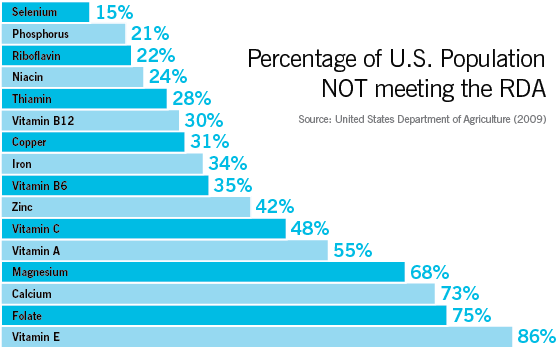Aloha readers!
Today I'd like to talk to you about the often neglected micronutrients - vitamins and minerals! Firstly, how has your diet been lately? Would you consider it balanced? Wait.. what does balanced even mean to you? We hear a lot about the macronutrients - carbohydrates, proteins, and fats. But what about the micronutrients?
Micronutrient deficiencies are more common than you think. The most common vitamin and mineral deficiencies in athletes include calcium and vitamin D, the B vitamins, iron, zinc, magnesium, and vitamin C. Macronutrient deficiency is more susceptible in people who restrict energy or had a recent rapid weight loss. Water intake can also make an impact on vitamin absorption.
If you're struggling to get adequate servings of fruits and vegetables, there is a slight chance that you may be have adequate intake of some vitamins and/or minerals. Micronutrient deficiencies can be corrected with time and a few simple steps.
1. Drink at least 8 glasses of water each day. Staying hydrated can help you curb your cravings, and help you be more alert and make better food choices. Drink more water if you have exercised that day, or done any running or hard labor for that day.
2. Eat more foods rich in vitamins and minerals, such as fruits and vegetables. Fruits and vegetables are naturally packed with lots of vitamins and minerals, as well as antioxidants. Eating a variety of fruits and vegetables will help make sure you get a wide range of vitamins and minerals that are essential for optimal body functions. If you're afraid you're still not eating enough fruits and veggies, talk to your physician to see if taking a multivitamin tablet is suitable for you. However, your major source should still be coming from natural foods, and not relying on supplements!
3. Get 2-3 servings of fish in your diet each week. Fish are good lean sources of protein, and marine sources, such as salmon, tuna, and shrimp are good sources of an essential fatty acid called alpha-linolenic acid, commonly known as omega-3.
Omega-3's produce anti-inflammatory compounds in the body, and are essential for regulating the inflammation functions of the body, as well as excess inflammation. Because our Western diet is often an imbalance of omega6:omega3 (more omega-6 consumed than omega-3), many people don't get enough omega-3 in their diet to synthesize these anti-inflammatory compounds. Taking an omega-3 supplement may be helpful if you don't like to eat or don't eat a lot of seafood, to help reduce excessive inflammation in your body.
I know my blog has been a big focus on the physical component of health and fitness, but you can't have health without the nutrition component either. I am a Nutrition major student, and topics like these are very, very interesting to me. I hope to bring to my readers the knowledge I learn from my classes, in order to help you live a happier, healthier, active life :)
Cheers!
xoxo




No comments:
Post a Comment